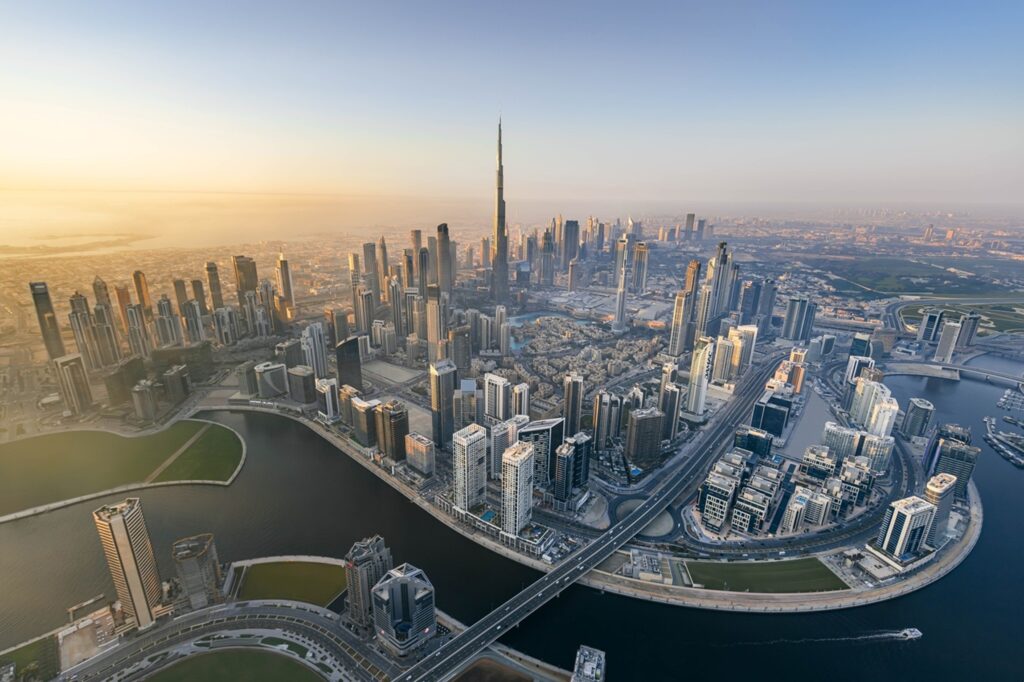
globalbizmag.com
Saudi Arabia Plans to 38 More Logistics Zones by 2030
Saudi Arabia’s logistics sector is all set to reach new heights as the Kingdom has announced establishing 59 logistics zones in the country by 2030. The logistics sector contributes 6% to Saudi Arabia’s and is projected to contribute 10% by 2030, which will be around $5.36 billion.
Of these logistics hubs, 21 are already operational and with the commissioning of remaining hubs, boosting the cargo capacity and supply chains further. The government has also inaugurated its first Special Integrated Logistics Zone at King Khalid International Airport, Riyadh.
It may be recalled that the government has announced a well-planned strategy to grow the logistics sector market size to $15.31 billion and position it as a global logistics hub as part of its Vision 2030.
Saudi Arabia’s Crown Prince and Prime Minister H R H Mohammed bin Salman had launched the Global Supply Chain Resilience Initiative (GSCRI) to attract local and international investments in the supply chain sector in October last year. The Kingdom aims to raise $10.64 billion in its first two years, the initiative has set $2.67 billion in financial and non-financial incentives for investors.
This was disclosed at a reception hosted by the Saudi Transport General Authority in London on Sunday and the event was attended several people including Prince Khalid Bn Bandar bin Sultan, the Saudi Ambassador to the UK, and Dr Rumaih Al Rumaih, the Deputy Minister of Transport and Logistic Services.
Fully Committed
Prince Khalid emphasised the nation’s unwavering commitment to fulfilling Vision 2030 and underscored the significance of recent advancements in the maritime industry. He also praised the progress made in logistics services and the Kingdom’s support for the marine environment.
Dr Al Rumaih, outlining the plans for the logistics zones, said that the government’s aim was to be among the top 10 countries in the Logistics Performance Index by 2030. He also revealed plans to increase port capacity to more than 40 million containers.
Saudi Arabia made significant progress in the World Bank’s Logistics Performance Index 2023 (LPI) moving from 55th place in 2018 to 38th position this year.
Dr Al Rumaih also expressed satisfaction with the strides made in enhancing the marine environment and the collaborations with the International Maritime Organisation (IMO) and its member states.
The government’s Vision 2030 is the roadmap to building a globalised country with sustainable progress.
According to the Ministry of Transport and Logistics, transport and logistics are the backbone of any economy, and our it plans to develop the sector, build connectivity, and enhance the Kingdom’s global competitiveness as a country.
“We are putting all our weight into developing internal and external supply chains and streamlining processes to the best international standards to provide world-class infrastructure and services. Our focus is on opening Saudi to the world with a multitude of opportunities,” the ministry said in a statement.
Pushing toward a fast-paced transformation, the kingdom has earmarked milestones for the rail, road, maritime, and aviation sectors. The largest and most populous GCC nation, the kingdom also aims to create over two hundred thousand jobs in the sector by 2030.
Key Logistics Hub
According to a report from research consultancy Solidiance, Saudi Arabia can become a key logistics hub in the GCC due to its heavy reliance on imports and its long-term plans to develop the non-oil sector.
The Kingdom represents the GCC’s largest transportation and logistics market, with its industry accounting for $19 billion out of the total value of $47 billion for the region last year, the report said.















